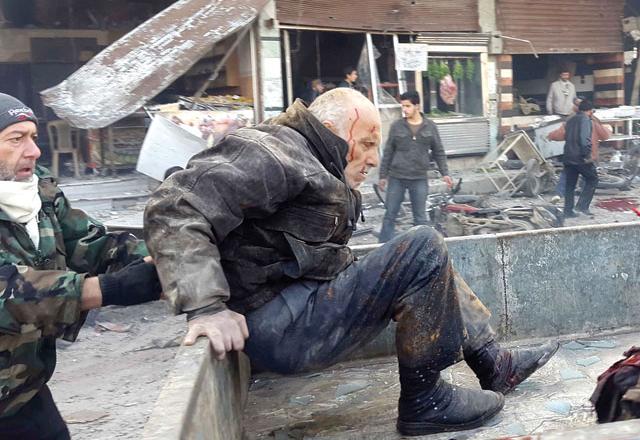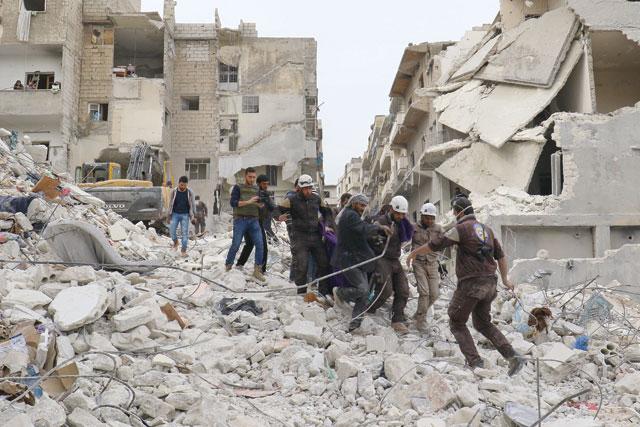You are here
Moscow-hosted Syria talks end, sides agree only to meet again
By Reuters - Jan 29,2015 - Last updated at Jan 29,2015
MOSCOW — Representatives of Syrian President Bashar Assad and opposition figures agreed at talks on Thursday to hold another round in Moscow, moderator Vitaly Naumkin said on Thursday, but no date was set.
The talks, a Russian initiative to revive stalled peace efforts in Syria's four-year-old civil war, were shunned by the main Syrian political opposition, and participants came together to adopt a series of points that largely represent Russia's own position on the violence. Moscow is a key backer of Assad.
Naumkin, an academic, said the sides agreed to join forces over the threat of terrorism in Syria, where Islamic State insurgents have taken over wide swathes of territory, though Moscow has described numerous other anti-Assad groups fighting in the country as "terrorists".
"The issue of fighting terrorism was one of the key themes discussed. This is exactly what brings the sides together as a key challenge to Syria's territorial integrity and unity," said Naumkin.
He said the talks offered the best chance at reaching another round of peace negotiations between the government and opposition in Geneva. The latest round of Geneva talks, the Geneva II conference, was held early last year.
Russia, whose stance on Syria has protected Assad from Western sanctions in the UN Security Council, pushed through with the conference despite a lack of support from Europe or the United States, where Moscow's ties are in tatters over Ukraine.
Naumkin said the majority of participants agreed to a series of points known as the Moscow principles which largely adhere to the talking points Russian Foreign Minister Sergei Lavrov and other diplomats have tirelessly adhered to during the conflict.
They include maintaining the sovereignty and unity of Syria, the rejection of foreign interference, combating terrorism and settling the country's civil war through peaceful means.
The main Syrian political opposition, the Western-backed National Coalition for Syrian Revolutionary and Opposition Forces, shunned the meeting in Moscow, saying it would only take part in talks that lead to Assad leaving power.
A document approved by rival sides during the first round of Geneva talks in 2012 called for creating a transitional governing body formed by mutual consent.
But the sides and their foreign backers, including Russia and the United States, have differed on what that means for Assad. His fate remains a key sticking point in the conflict, which has killed more than 200,000 people in almost four years.
There had never been high hopes of a breakthrough at the Moscow talks, a Western diplomat who tracks Syria said. He said that a lack of a real opposition, a lack of enthusiasm on behalf of Assad's government and a decision by ex-national coalition chief Moaz Al Khatib to shun the conference had doomed it.
"I thought — this is not happening that well, and it went downhill from there," the diplomat said.
Related Articles
MOSCOW — The main Western-backed Syrian opposition, long distrustful of Russia over its backing of Syrian President Bashar Assad, is due to
Russia plans to bring together members of the Syrian regime and opposition in a new push to resuscitate talks on ending the country's nearly four-year civil war, although hopes of a breakthrough are slim.
GENEVA — Syria's opposition on Monday urged Russia, a key ally of President Bashar Al Assad, to put pressure on Damascus to help kickstart s

















